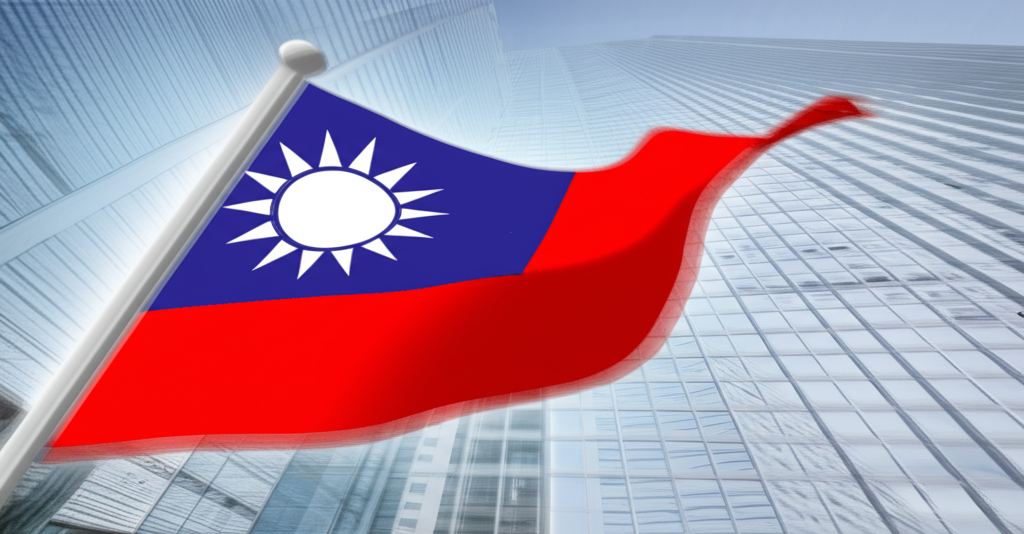Taiwan's Economy Braces for Impact: Navigating the US Tariff Tsunami
Business Groups Urge Swift Action as Trump's Tariffs Threaten Taiwan's Export-Driven Growth

Taipei, April 3 – Taiwan's export-oriented economy is bracing for potential headwinds following the latest tariff announcements by U.S. President Donald Trump, a major Taiwanese business group warned on Thursday.
In a released statement, the Taiwan-based Chinese National Association of Industry and Commerce (CNAIC) expressed concerns over the unexpectedly high tariffs and implored Taiwan's government to immediately implement emergency measures to safeguard the local economy.
The announcement, made on Wednesday in the U.S., outlined "reciprocal tariffs" impacting numerous trading partners, including a 32 percent tax on Taiwanese goods scheduled to take effect on April 9.
At an event, Donald Trump unveiled a 10 percent baseline tax on imports from all nations starting April 5. Countries with substantial trade surpluses with the United States will face escalated duties beginning April 9, specifically impacting Taiwan (32 percent), China (34 percent), Japan (24 percent), South Korea (26 percent), Vietnam (46 percent), and Thailand (37 percent).
However, key Taiwanese exports like semiconductors, along with other products such as copper, pharmaceuticals, and lumber, are excluded from the new tariff regulations.
The CNAIC recommended that Taiwanese authorities bolster communication with their American counterparts to facilitate tariff reductions while highlighting the crucial role of Taiwanese firms within the global supply chain.
Furthermore, the group suggested Taiwan increase purchases of U.S. energy and agricultural products, boost investments in the U.S. market, and pursue preferential tax treatment.
The CNAIC urged Taiwan to persist in efforts to establish a double taxation avoidance agreement and an investment protection accord with the U.S. to protect Taiwanese investors' interests.
In response to the tariff threats, the CNAIC proposed that the government provide crucial tax and lending assistance to bolster the resilience of the local industrial sector and shield it from external pressures.
The CNAIC also emphasized the need for Taiwan to upgrade its industries, diversify its export markets, and strengthen international cooperation to increase its competitive edge, including the pursuit of free trade agreements with its partners.
The group noted that, with high tariffs also affecting several Southeast Asian countries where many Taiwanese companies have production facilities, a collaborative solution between the public and private sectors is crucial.
The American Chamber of Commerce in Taiwan (AmCham) released a separate statement on Thursday, highlighting Taiwan's "indispensable" role in the U.S. economy. AmCham pointed out that Taiwanese firms produce over 90 percent of high-end chips globally and called for continued strengthening of trade and economic ties between the two nations.
"In a time of growing geopolitical complexity, the U.S.-Taiwan partnership is not only a driver of shared economic prosperity but also central to supply chain security and regional stability," stated AmCham.
As the seventh largest trading partner of the U.S., with a total trade volume of US$158.6 billion in 2024, AmCham stated that "Taiwan is a critical supplier of high-value, capital-intensive products essential to American industries -- including semiconductors, ICT products and machinery -- that cannot rapidly be produced at scale elsewhere."
In addition, AmCham added that the U.S. has been a significant seller to Taiwan of agricultural products, aircraft, and industrial machinery, facing minimal competition from domestic Taiwanese producers.
According to AmCham, Taiwan invested US$13.97 billion in the U.S. in the initial 10 months of this year, representing 30.8 percent of Taipei's total outbound investments.
Other Versions
La economía de Taiwán se prepara para el impacto: Navegando por el tsunami arancelario de EE.UU.
L'économie taïwanaise se prépare à l'impact : Naviguer dans le tsunami des tarifs douaniers américains
Ekonomi Taiwan Bersiap Menghadapi Dampak: Menghadapi Tsunami Tarif AS
L'economia di Taiwan si prepara all'impatto: Come affrontare lo tsunami dei dazi statunitensi
台湾経済、衝撃に備える:米国の関税津波を乗り切る
대만 경제, 충격에 대비하다: 미국 관세 쓰나미 탐색하기
Naghanda ang Ekonomiya ng Taiwan para sa Epekto: Paglalayag sa US Tariff Tsunami
Экономика Тайваня готовится к удару: Навигация по американскому тарифному цунами
เศรษฐกิจไต้หวันเตรียมรับมือ: ฝ่าคลื่นซัดจากมาตรการภาษีของสหรัฐฯ
Kinh tế Đài Loan Chuẩn Bị Đối Mặt: Điều Hướng Cơn Sóng Thần Thuế Quan từ Mỹ
